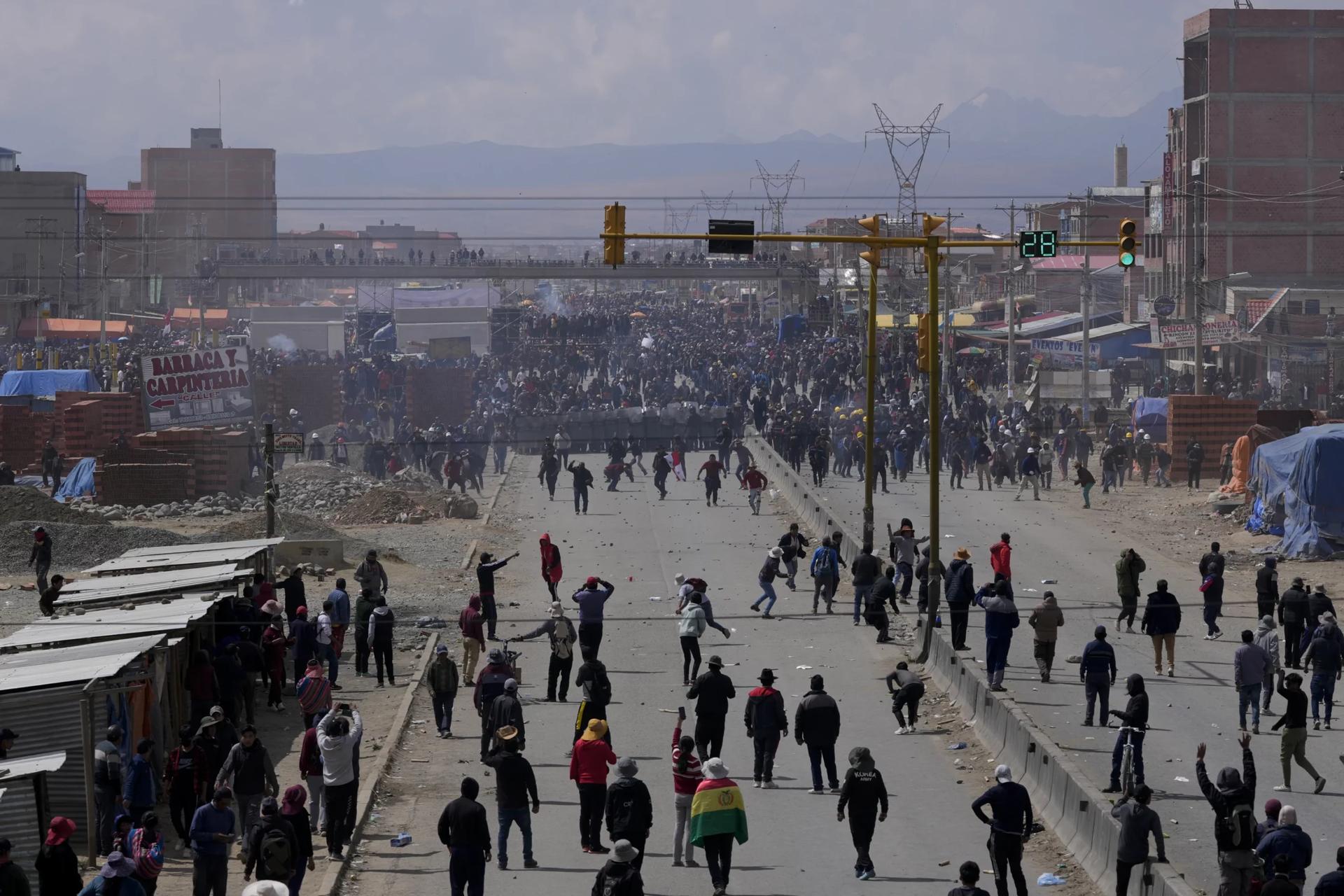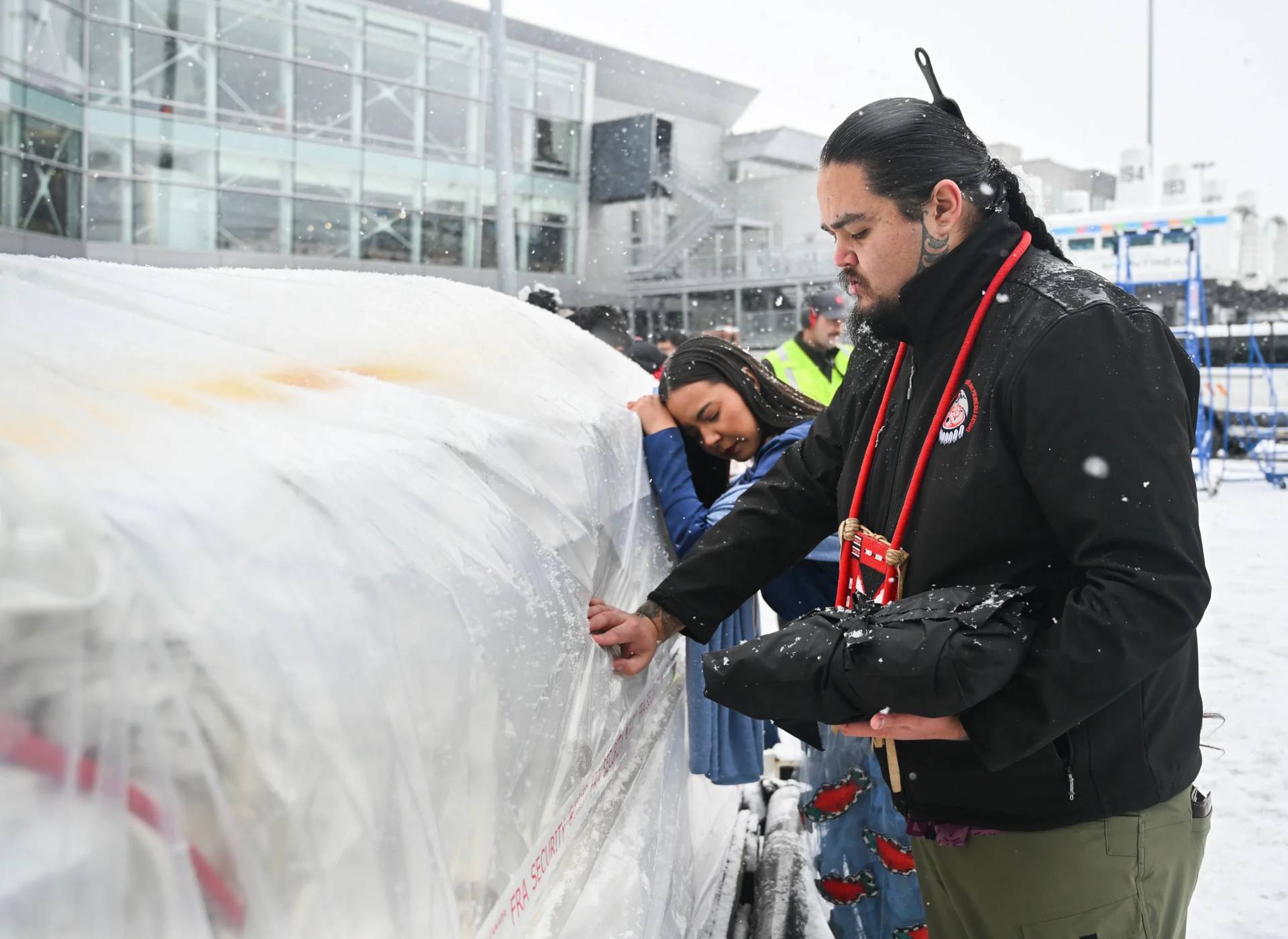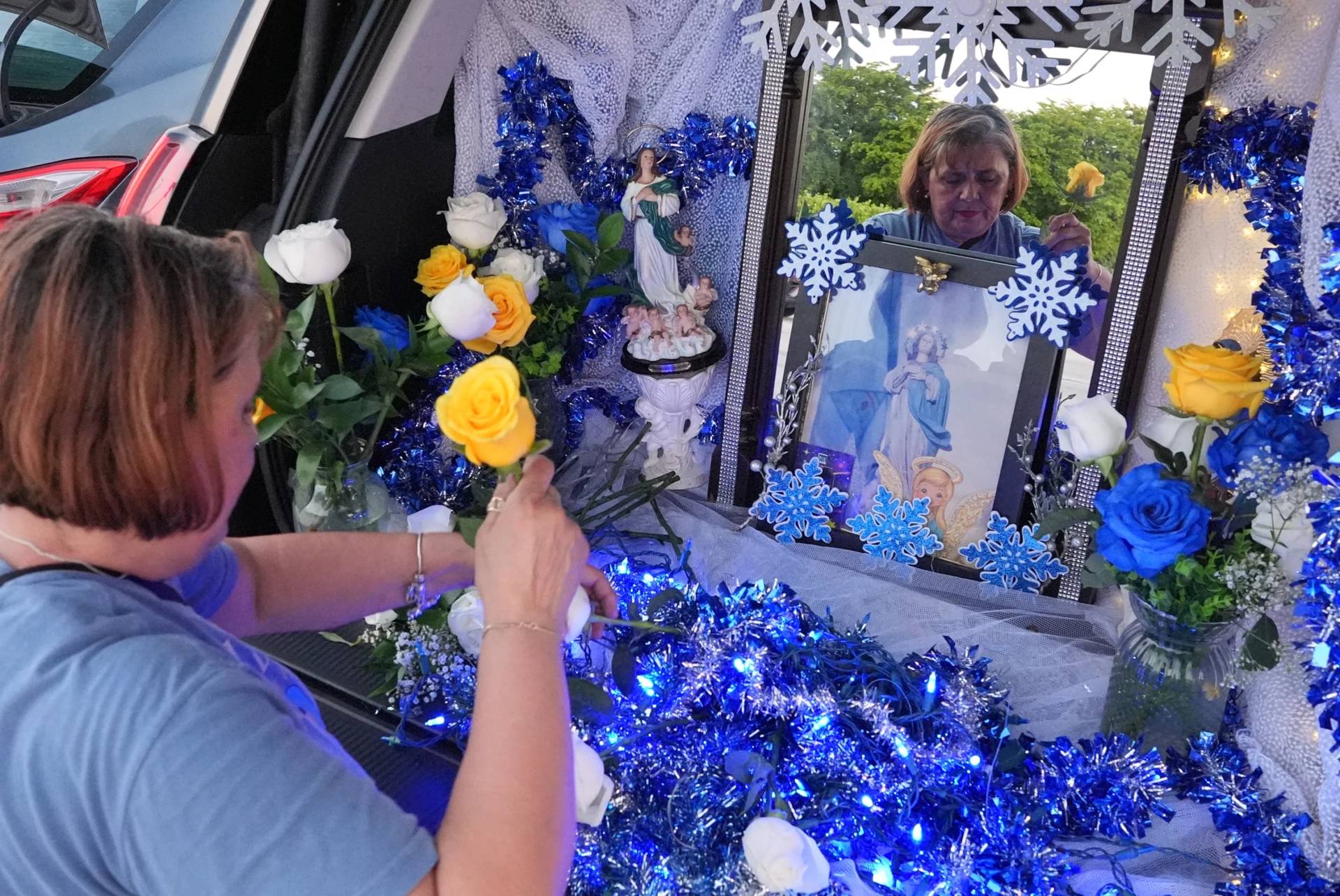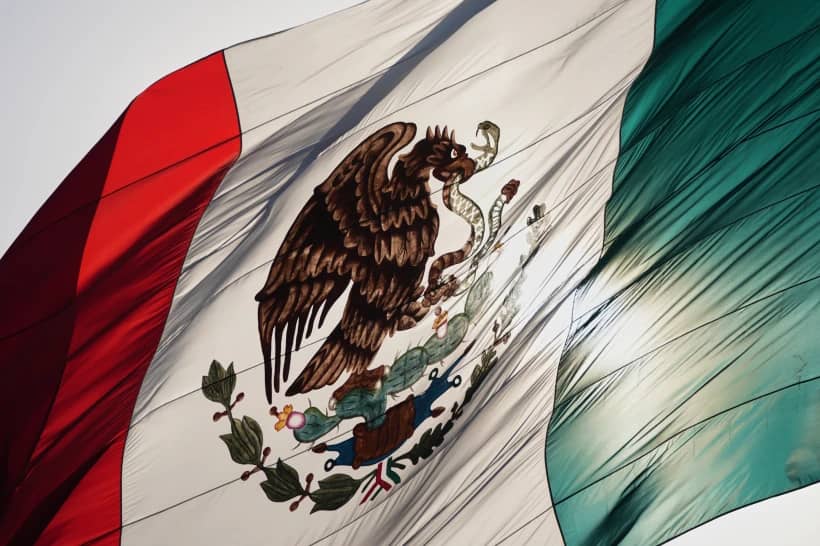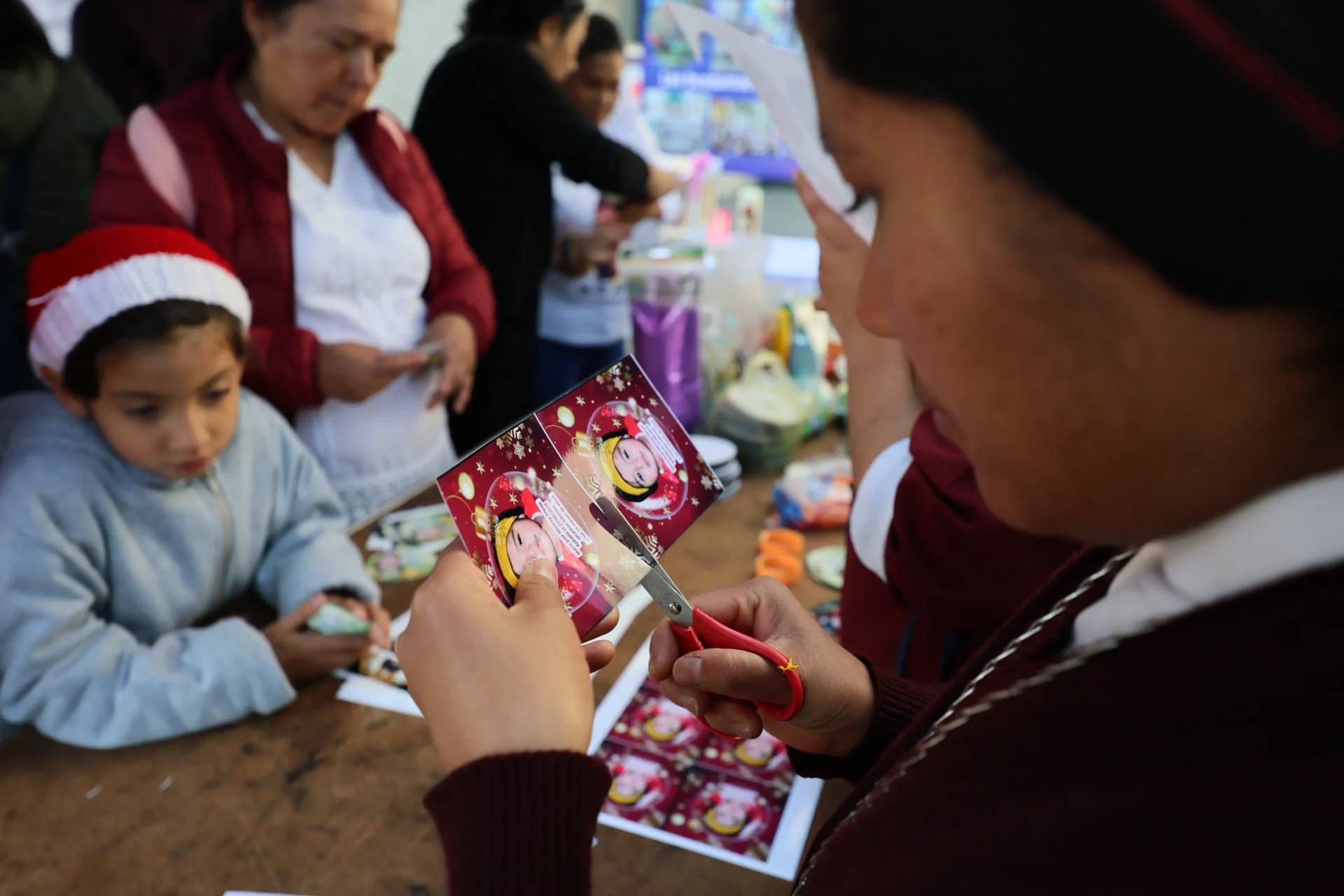SÃO PAULO, Brazil – After more than 20 days of protests led by former leader Evo Morales against the administration of President Luis Arce, which included roads blocked and caused billions in economic losses, the Bolivian bishops issued a message in which it called the people to “an open dialogue that helps to extinguish violence and build peace.”
The Bolivian bishops gathered on Nov. 7 in Cochabamba for their 115th Assembly, only one day after the protestors who had been blocking several roads, especially in the region of Cochabamba, announced they would interrupt their demonstrations.
Once close allies, Morales and Arce have been engaged in a war for power over the past year. Morales wants to head the ticket of his Movimiento al Socialismo (Movement Towards Socialism) party in the 2025 presidential election, despite the ruling of the nation’s Constitutional Court against a potential fourth term for him (the Bolivian law establishes a maximum of two mandates.) Arce has been using the government’s structure to secure his supremacy in MAS.
A common tool for Morales has been the promotion of demonstrations involving blockades of roads. Between Oct. 14 and Nov. 6, pro-Morales protestors managed to cut most of the communications between the country’s eastern and western regions, leading to the lack of a number of food items and to the fluctuation of prices, including of fuel. Observers said the idea of the former leader is to harm Arce’s government and weaken his name for the upcoming election.
The Church has been mostly distant from the conflict, given that MAS has historically had bad relations with the clergy. But the episcopate’s message still addressed the political crisis.
Mentioning Pope Francis’s recent encyclical Dilexit nos, the Bolivian episcopate declared that the current ethical crisis “is not one of understanding or of intelligence, but one of heart.”
The letter asks if those who destroy the environment have a heart, as well as those who take part in protests that harm the people.
“Do those who benefit from the economic collapse we are suffering have a heart, or those who block roads without feeling the slightest bit of compassion, seeing how our farmers, businessmen, producers, transporters and our people in general cry?” the message asked.
The bishops declared that they “believe in the Bolivians who work, in the families, in the children and the youth, in our mothers and grandmothers, in our fathers and so many people of good will who, with a generous heart, build Bolivia.”
“One cannot build a motherland over lies, violence, hatred and death. God conducts us to liberty when the people are faithful, live in faith, in hope, in truth, and in solidarity,” the document added.
The bishops also mentioned that the large percentage of children and teenagers in Bolivia’s population is a signal of hope, given that those are the people who can change things in the country.
“If we truly have a sincere dialogue with God that can take us to national reconciliation, whose objective is respect to human dignity and common good; if we convert the current crisis in opportunities for real structural changes in the country; if we extend our hands towards reconciliation and peace, we shall not hold the guns that cause pain and suffering to the people,” the letter read.
The bishops’ message may reach few Bolivians not only because it deals with a crisis that occurs out of the Catholic sphere of influence, but also because the Bolivian Church has been facing an unprecedented crisis of popularity, theologian Nelson Jordan Bazán told Crux.
“Since the scandal involving Father Alfonso Pedrajas’s abuse cases came to light last year, the Church has been facing an erosion of its public image that I fear is unstoppable,” he said.
In 2023, Spanish newspaper El Pais revealed Jesuit Father Pedrajas perpetrated dozens of abuses over decades while working at a school in Cochabamba. He described all of them in his diary, which was discovered by his nephew in Spain years after his death in 2009.
The scandal, which shocked not only Bolivians but Catholics from different parts of the world, was a major blow to the Bolivian Society of Jesus and to the country’s Church as a whole.
“Since then, fewer and fewer people have been willing to hear the Church’s voice when it comes to secular themes,” Jordán said.
The hope manifested by the bishops on the new generations of Bolivian citizens, which may get involved in politics and build alternatives to the current dead-end political situation, may also be applicable to Catholicism itself.
“But we need prelates who have a powerful public voice, like we used to have in the past,” Jordán concluded.
